Overview:
As Australian business continues its recovery from COVID-19, employers will increasingly have to consider the long-term role of working from home and the potential benefits of maintaining flexible remote working arrangements for their employees.

With work from home (WFH) becoming a necessity rather than a perk of the job in 2020, there were no doubt pros and cons for both employers and employees as we adjusted to this new, albeit temporary, norm.
Although there have been many other challenges for businesses that have felt significant economic impacts as a result of the pandemic, what probably came as a welcome surprise for most was how smoothly the Australian workforce transitioned to WFH.
A study done by the Australian Human Resources Institute (AHRI) on the impact of COVID-19 on the workforce found that remote working is more achievable than previously thought, and 75.9% of HR advisers involved in the study are now more open to remote and flexible working arrangements.
Another recent survey of 5,000 workers by intelligent workspace provider Citrix found that two-thirds say they are more productive working from home than in an office, while other benefits include reduced commute times for workers, improved work-life balance and positive impacts on organisational culture.
Where to from here?
As we move into the next stages of recovery from the pandemic, business will increasingly need to consider the role that flexible work arrangements will play in their organisation.
While the prospects of implementing more permanent flexible work arrangements will be dependent on the type of organisation and the specific role that individuals hold within the organisation, there has been a seismic shift in attitudes toward WFH over the past six months.
Perhaps one of the most surprising findings from COVID-19 has been the impact WFH has had on workplace culture. While the majority of HR practitioners surveyed as part of the AHRI study concluded that building culture among a remote workforce is a challenge, the impacts weren’t necessarily negative.
In fact, it was found that during COVID-19 employees have been using technology to connect with each other in a more genuine way and have become more comfortable sharing details about personal situations outside of work. Importantly, from an HR perspective, the majority of those surveyed by AHRI found there was no change in employees reporting work-related issues.
As Director of Perks People Solutions, Cecilia White points out, leadership plays a critical role in creating a successful remote working culture and developing robust strategies that support WFH arrangements is key.
“Flexibility is becoming the new norm and now is the perfect time for organisations to capitalise on benefits they’ve realised during COVID to facilitate positive, long-term change,” she says.
“However, this can’t be done on a whim and needs to be supported by robust policies, guidelines and appropriate infrastructure, to ensure employees can successfully work from home. These frameworks need to clarify expectations under WFH arrangements and consider any other technical aspects, such as changes to tax liabilities or worker’s salaries.”
“Ultimately, the success of remote work culture comes back to leadership and management that can enable the required levels of support, communication, collaboration and trust.”
WFH isn’t for everyone
While there has been significant commentary around the benefits of WFH, perhaps less highlighted is the potential downsides some employees and businesses may experience.
For some businesses, it’s simply not feasible to work remotely and for some individuals, who were forced into WFH arrangements this year due to COVID-19 restrictions, the situation may have been less than ideal.
Naturally, the individual experience for the worker will vary and certain personalities will adapt better to the WFH environment than others. For some, they may experience a range of issues, including:
- A loss of social connection,
- Absence of mentoring/coaching,
- Blurring of the line between work and home
- Reduced collaboration and effective teamwork,
- Struggles with focus and prioritising tasks,
- Home environment ill-suited to work, and/or,
- Uncertainty about performance/progress.
“The whole point of implementing flexible working arrangements is to provide more flexibility for individual circumstances, so it’s really important to consider that WFH might not be suited to everyone or every business,” Cecilia says.
“For some, it may be that they rely on the office infrastructure such as high-speed internet, printers or hardware that they cannot access at home, while extroverts within teams may struggle to cope without the in-person interaction.”
“If you do decide to go down the route of making remote work a more permanent fixture of your business, it’s something you’ll need to work through with your employees to ensure that some team members are not disadvantaged as a result.”
Providing your employees with support to work remotely can also help smooth the transition as well. Whether this is in assisting them to setup an appropriate home office, facilitating increased structure with regular catch-ups or even providing access to a confidential employee assistance program, there are a range of strategies worth considering to help make WFH more successful.
Blended working – a happy medium?
Like any big decision in the workplace, it’s important to weigh up both the pros and cons before pursuing an outcome and WFH is no different.
When thinking about the business case for encouraging increased workplace flexibility, there are several questions employers should ask themselves:
- Does this make my business more attractive to a wider range of talent?
Flexible working arrangements are a selling point to a broad talent pool, including younger generations, workers with family or other caring responsibilities and workers with a long commute. Consider whether you could unlock a broader pool of talent by promoting flexible work.
2. Will this help further the objectives of my business?
Consider the impacts on workplace culture, cohesion, employee productivity and the ability of your business to function with a remote workforce.
3. What costs are associated with this?
Will you need to spend big to help employees setup home offices or to develop the infrastructure to enable secure remote work? Conversely, there could be significant savings to be found in rent if you require less office space.
Perhaps the most important question of all is: “what does remote work looks like in practice?”
One emerging concept is blended work, which incorporates both home days and office days, in an attempt to strike the balance between the pros and cons associated with each.
Whether it be staggering or compressing hours or days, or providing set or fluid WFH days, this blended concept can take a variety of forms depending on the needs of your business. What this looks like will ultimately be up to your company’s leadership, but it’s important to remember why you’re doing this. WFH is ultimately about encouraging flexibility and developing an environment where employees feel valued, trusted and motivated to work hard.
Meet our experienced and dedicated team of consultants
Our Consultants
Want to know more? Get in touch.
Please fill out the form below to make an appointment or request more information.
h
Let our wealth of knowledge and experience guide you.
Related Insights










